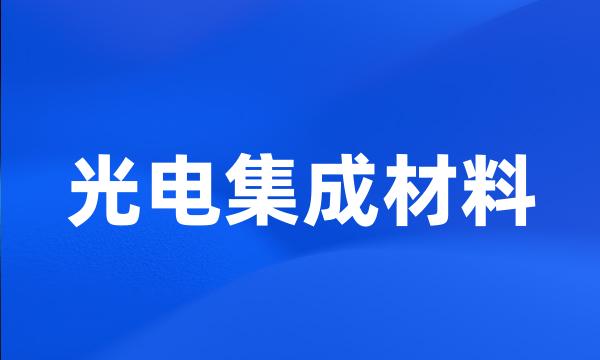光电集成材料
 光电集成材料
光电集成材料-
在光电集成研究中硅材料更受青睐。
Si material is more popular in the photoelectric integrated research .
-
硅作为当前研究的热点领域,即光电集成的基本材料,一个主要的缺点就是它是间接带隙半导体,自身只能发射极微弱的红外光。
A great drawback is the fact that silicon , the basic material for photonics which is the hot field of research and technology , is an indirect-gap semiconductor which emits light in the infrared and at very low efficiencies .
-
硅材料具有资源丰富、价格相对低廉、禁带宽度较窄、生物无毒性等诸多优点,是最重要的半导体材料,同是也将是未来微纳米光电集成的基础材料。
Silicon is regarded as the most important semiconductive material , as well as the basic material of micro - or nano-scale opto-electronic integrated devices in the future , due to its excellent properties including rich resources , relatively low price , narrow band gap , biological non-toxicity .
-
SiC以其特有的大禁带宽度、高临界击穿场强、高电子迁移率、高热导率等特点,成为制造高温、高频、大功率、抗辐照及光电集成器件的理想材料。
Silicon carbide ( SiC ), which has large band gaps , high critical breakdown field strength , high electron mobility and good thermal conductivity , is considered as an ideal material to manufacture the optoelectronic integrated device with high temperature , high frequency , high power and radioresistance .
